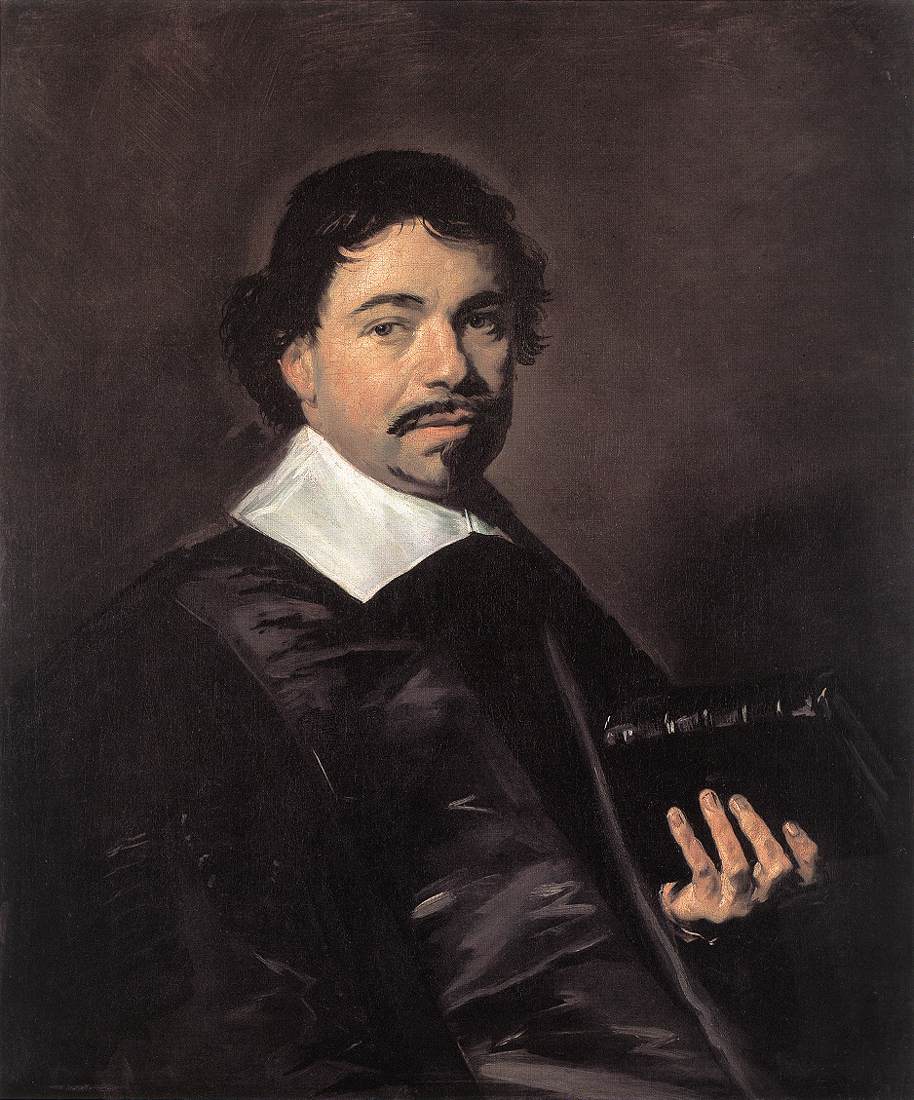Johannes Hoornbeek on:
[Wikipedia]
[Google]
[Amazon]
 Johannes Hoornbeek (4 November 1617,
Johannes Hoornbeek (4 November 1617,
">"Johannes Hoornbeek" by Frans Hals [Selected Works]
/ref>
* 1617 births 1666 deaths Dutch Calvinist and Reformed theologians 17th-century Calvinist and Reformed theologians People from Haarlem Academic staff of Leiden University Academic staff of Utrecht University Frans Hals {{Theologian-stub
 Johannes Hoornbeek (4 November 1617,
Johannes Hoornbeek (4 November 1617, Haarlem
Haarlem (; predecessor of ''Harlem'' in English) is a city and municipality in the Netherlands. It is the capital of the province of North Holland. Haarlem is situated at the northern edge of the Randstad, one of the most populated metropoli ...
– 23 August 1666, Leiden
Leiden (; in English and archaic Dutch also Leyden) is a city and municipality in the province of South Holland, Netherlands. The municipality of Leiden has a population of 119,713, but the city forms one densely connected agglomeration wit ...
), was a Dutch Reformed
The Dutch Reformed Church (, abbreviated NHK) was the largest Christian denomination in the Netherlands from the onset of the Protestant Reformation in the 16th century until 1930. It was the original denomination of the Dutch Royal Family an ...
theologian. He was a student and a follower of Gisbertus Voetius
Gisbertus Voetius ( Latinized version of the Dutch name Gijsbert Voet ; 3 March 1589 – 1 November 1676) was a Dutch Calvinist theologian.
Life
He was born at Heusden, in the Dutch Republic, studied at Leiden, and in 1611 became Protestant past ...
, writing with him on spiritual desertion
Religious disaffiliation is the act of leaving a faith, or a religious group or community. It is in many respects the reverse of religious conversion. Several other terms are used for this process, though each of these terms may have slightly diffe ...
. Like his teacher Voetieus, he was also later a professor of theology at the University of Leiden
Leiden University (abbreviated as ''LEI''; nl, Universiteit Leiden) is a public research university in Leiden, Netherlands. The university was founded as a Protestant university in 1575 by William, Prince of Orange, as a reward to the city of Le ...
and University of Utrecht
Utrecht University (UU; nl, Universiteit Utrecht, formerly ''Rijksuniversiteit Utrecht'') is a public research university in Utrecht, Netherlands. Established , it is one of the oldest universities in the Netherlands. In 2018, it had an enrollme ...
. The two universities were closely related in the 17th century, and both the teacher and his students participated in the intellectual "Utrech Circle." Another member of the circle was Hornbeek's student colleague Andreas Essenius Andreas Essenius (February 1618–18 May 1677) was a Dutch Reformed theologian, controversialist and academic. He became professor of theology at the University of Utrecht.
Life
He was born Andreas van Essen in Zaltbommel where he studied Latin an ...
. The circle was also known as ''De Voetiaanse Kring'' (The Voetian Circle), and it was one of the most influential intellectual circles of the Dutch second Reformation.
Works
Hoornbeck was a writer of polemical works. His many works include: *''De Conversione Indorum et Gentilum'', libri duo (on the conversion of native populations of Asia and America) *''Pro Convincendis, et Convertendis Judaeis'', libri octo (on the conversion of the Jews) He attacked theSocinians
Socinianism () is a nontrinitarian belief system deemed heretical by the Catholic Church and other Christian traditions. Named after the Italian theologians Lelio Sozzini (Latin: Laelius Socinus) and Fausto Sozzini (Latin: Faustus Socinus), uncle ...
, Mennonites
Mennonites are groups of Anabaptist Christian church communities of denominations. The name is derived from the founder of the movement, Menno Simons (1496–1561) of Friesland. Through his writings about Reformed Christianity during the Radic ...
, the Remonstrants
The Remonstrants (or the Remonstrant Brotherhood) is a Protestant movement that had split from the Dutch Reformed Church in the early 17th century. The early Remonstrants supported Jacobus Arminius, and after his death, continued to maintain his ...
and Cartesians
Cartesianism is the philosophical and scientific system of René Descartes and its subsequent development by other seventeenth century thinkers, most notably François Poullain de la Barre, Nicolas Malebranche and Baruch Spinoza. Descartes is of ...
. A collection of his polemical writing was the ''Summa Controversiarum Religionis; Cum Infidelibus, Hæreticis, Schismaticis: Id Est, Gentilibus, Judæis, Muhammedanis; Papistis, Anabaptistis, Enthusiastis et Libertinis, Socinianis; Remonstrantibus, Lutheranis, Brouvnistis, Græcis'' of 1653 (second edition, 1658). He also wrote "a fierce critique of Judaism
Judaism ( he, ''Yahăḏūṯ'') is an Abrahamic, monotheistic, and ethnic religion comprising the collective religious, cultural, and legal tradition and civilization of the Jewish people. It has its roots as an organized religion in the ...
in general and of the Kabbalah
Kabbalah ( he, קַבָּלָה ''Qabbālā'', literally "reception, tradition") is an esoteric method, discipline and Jewish theology, school of thought in Jewish mysticism. A traditional Kabbalist is called a Mekubbal ( ''Məqūbbāl'' "rece ...
in particular," advocating the conversion of the Jews to the Dutch Calvinist/Reformed Church. The book ''Tesjubat Jehuda sive pro convicendis et convertendis Judaeis Libri Octo'' was published in Leiden in 1655.
He was painted by Frans Hals
Frans Hals the Elder (, , ; – 26 August 1666) was a Dutch Golden Age painter, chiefly of individual and group portraits and of genre works, who lived and worked in Haarlem.
Hals played an important role in the evolution of 17th-century group ...
./ref>
Notes
External links
* 1617 births 1666 deaths Dutch Calvinist and Reformed theologians 17th-century Calvinist and Reformed theologians People from Haarlem Academic staff of Leiden University Academic staff of Utrecht University Frans Hals {{Theologian-stub